
Algiers: The White City of the Mediterranean
Algiers, the capital of Algeria, is a vibrant city brimming with history and culture. Known as the 'White City' due to its glistening white buildings, Algiers offers a unique blend of traditional and modern attractions. The city is nestled along the Mediterranean coast, providing stunning sea views and a pleasant climate year-round. Begin your journey in the Casbah, a UNESCO World Heritage site. This ancient citadel is a maze of narrow streets, historic mosques, and traditional houses. Walking through the Casbah is like stepping back in time, with its rich history dating back to the 10th century. Don't miss the Ketchaoua Mosque and the Palace of the Dey, both architectural marvels. For a taste of modern Algiers, visit the bustling city center. Here you'll find the Martyrs' Memorial, a towering monument commemorating the Algerian War of Independence. The nearby Jardin d'Essai is a lush botanical garden perfect for a relaxing stroll. Algiers also boasts a vibrant arts scene, with numerous galleries and theaters showcasing local talent. Algiers' cuisine is a delightful mix of flavors, with influences from Berber, Arab, and French traditions. Be sure to try local dishes like couscous, tagine, and the famous Algerian pastries. The city's markets, such as the Souk El Tenine, offer a sensory feast of sights, sounds, and smells, making them a must-visit for any traveler.
Local tips in Algiers
- Visit the Casbah early in the morning to avoid the crowds and experience its true charm.
- Dress modestly, especially when visiting religious sites, to respect local customs and traditions.
- Use local taxis or public transport to navigate the city, as traffic can be challenging for first-time visitors.
- Learn a few basic phrases in French or Arabic; locals appreciate the effort and it can enhance your experience.
- Try to visit Algiers in the spring or autumn for the most pleasant weather and fewer tourists.
Neighbourhoods in Algiers
Algiers: The White City of the Mediterranean
Algiers, the capital of Algeria, is a vibrant city brimming with history and culture. Known as the 'White City' due to its glistening white buildings, Algiers offers a unique blend of traditional and modern attractions. The city is nestled along the Mediterranean coast, providing stunning sea views and a pleasant climate year-round. Begin your journey in the Casbah, a UNESCO World Heritage site. This ancient citadel is a maze of narrow streets, historic mosques, and traditional houses. Walking through the Casbah is like stepping back in time, with its rich history dating back to the 10th century. Don't miss the Ketchaoua Mosque and the Palace of the Dey, both architectural marvels. For a taste of modern Algiers, visit the bustling city center. Here you'll find the Martyrs' Memorial, a towering monument commemorating the Algerian War of Independence. The nearby Jardin d'Essai is a lush botanical garden perfect for a relaxing stroll. Algiers also boasts a vibrant arts scene, with numerous galleries and theaters showcasing local talent. Algiers' cuisine is a delightful mix of flavors, with influences from Berber, Arab, and French traditions. Be sure to try local dishes like couscous, tagine, and the famous Algerian pastries. The city's markets, such as the Souk El Tenine, offer a sensory feast of sights, sounds, and smells, making them a must-visit for any traveler.
When is the best time to go to Algiers?
Iconic landmarks you can’t miss
Martyrs Memorial
A towering monument in Algiers honoring Algeria's independence, with panoramic views and a museum detailing the nation's history.

Botanical Garden Hamma
Discover a serene escape in Algiers at the Jardin d'Essai du Hamma, a historic botanical garden with diverse flora and tranquil landscapes.
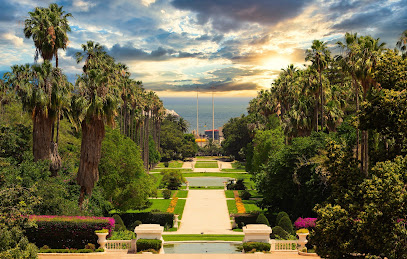
Martyrs' Square
Explore Martyrs' Square in Algiers: a vibrant hub of history, culture, and remembrance in the heart of the city.
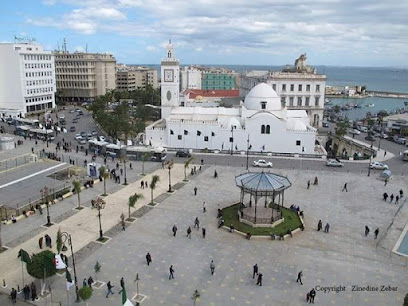
Church of Notre Dame of Africa
Discover the architectural marvel of Notre Dame d'Afrique in Algiers, a symbol of faith, unity, and breathtaking Mediterranean views.
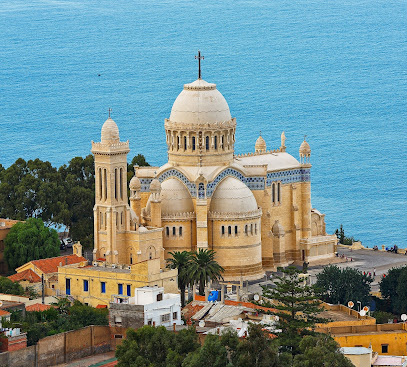
Ketchaoua Mosque
Explore the Ketchaoua Mosque in Algiers, a historic landmark blending Moorish and Byzantine architecture in the heart of the Casbah.
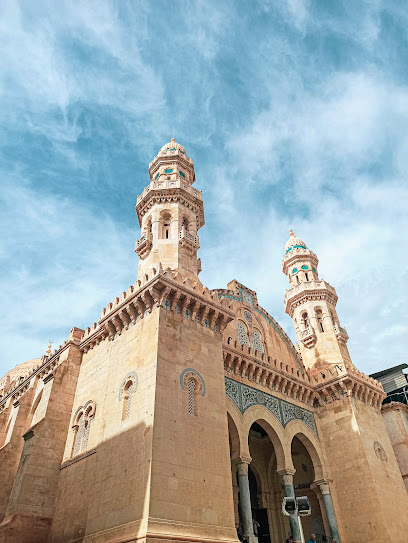
Riad Al Fath
Explore Algerian culture and history at Riad Al Fath, a landmark complex in Algiers with museums, gardens, and stunning architecture.
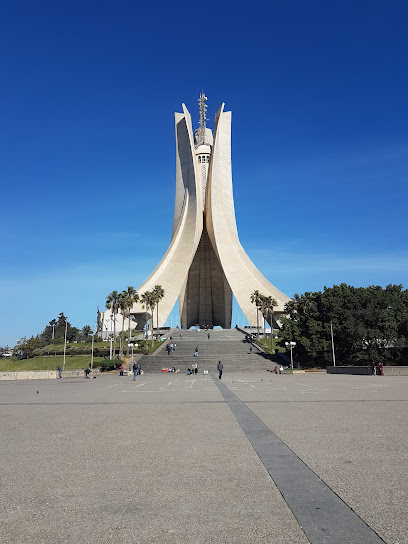
Emir Abdelkader Place
Discover Emir Abdelkader Place in Algiers: A vibrant square honoring Algeria's hero, blending history, culture, and local life.
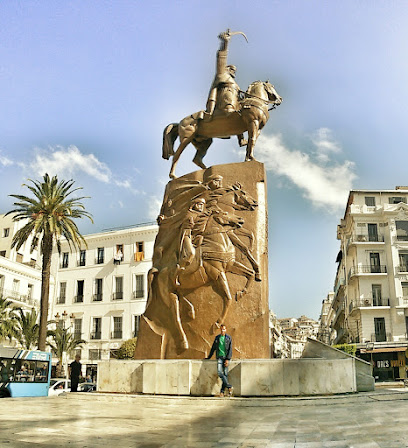
Sacred Heart Cathedral
Discover Algiers' Sacred Heart Cathedral: A stunning blend of neo-Gothic and Byzantine architecture, offering a peaceful retreat and cultural insight.
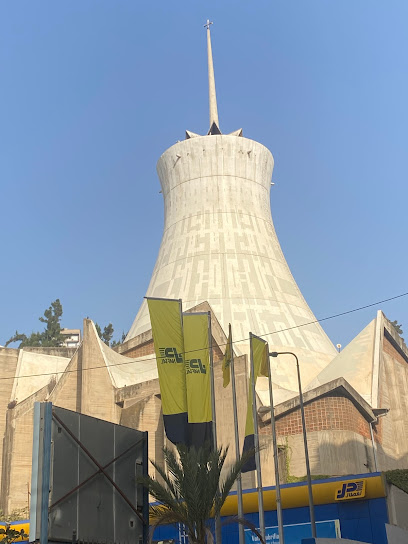
Al-Rahma Mosque
Discover Al-Rahma Mosque in Algiers: a historical landmark blending Byzantine architecture with Islamic tradition in the heart of the city.
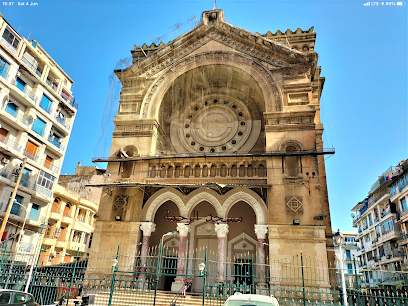
The Great Mosque
Explore the Djamaa el Kebir, Algiers' oldest mosque, a stunning example of Almoravid architecture with centuries of history within the Casbah.
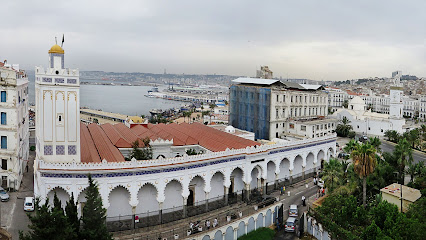
Culture Palace Moufdi Zakaria
Explore Algerian heritage and creativity at the Culture Palace Moufdi Zakaria, a vibrant center for arts, exhibitions, and performances in Algiers.
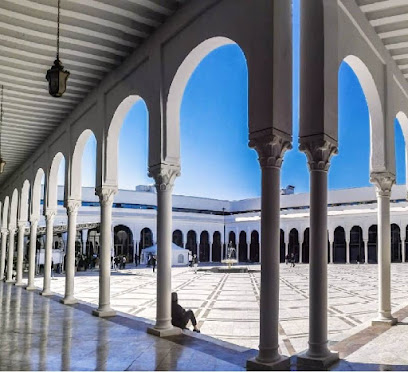
National Museum of Antiquities and Islamic Art
Discover Algeria's ancient roots and Islamic heritage at Algiers' National Museum of Antiquities and Islamic Art, the oldest of its kind in Africa.
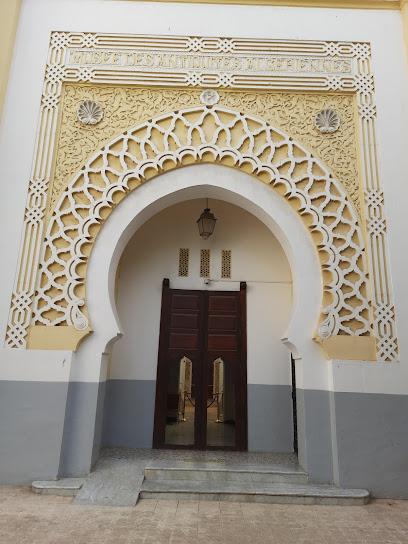
Hamma Zoological Park
Discover diverse wildlife and lush gardens at Hamma Zoological Park, a perfect family escape in the heart of Algiers.
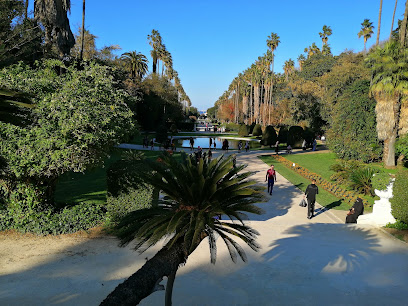
National Museum of Arts and Popular Traditions
Explore Algeria's vibrant cultural heritage through traditional arts, crafts, and historical artifacts in the heart of Algiers' Casbah.
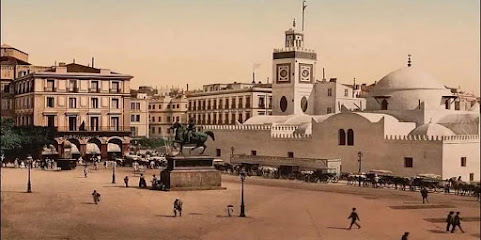
Dar Mustapha Pacha
Explore Dar Mustapha Pacha in Algiers: A stunning Ottoman-era palace and museum showcasing Algerian miniatures, calligraphy, and history.
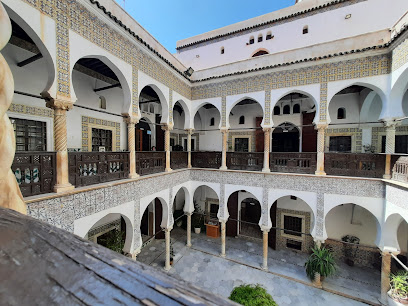
Unmissable attractions to see
Botanical Garden Hamma
Discover a world of flora and fauna at Algiers' historic Botanical Garden Hamma, a serene escape in the heart of the city.
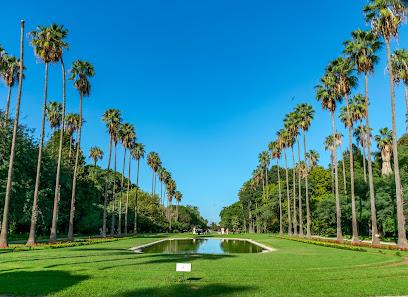
Mosque of Algiers
Discover the stunning Mosque of Algiers, a magnificent blend of tradition and modernity, showcasing the essence of Islamic architecture and cultural heritage.
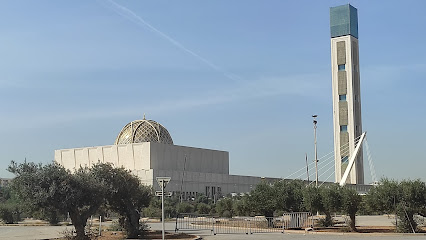
Martyrs' Square
Discover Martyrs' Square in Algiers: a vibrant hub of history, culture, and remembrance honoring Algeria's heroes and rich heritage.
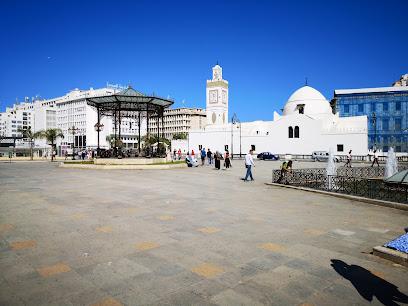
Church of Notre Dame d'Afrique
Discover Notre Dame d'Afrique in Algiers: A stunning basilica symbolizing interfaith harmony with panoramic views of the Mediterranean Sea.
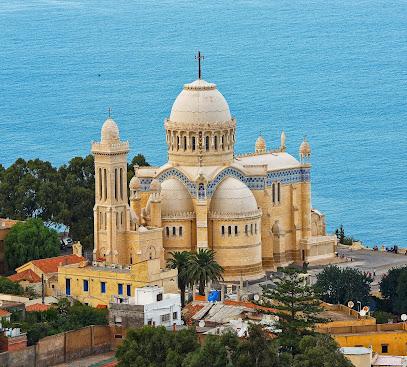
Teri Park
Experience thrilling rides and create unforgettable memories at Teri Park, Chéraga's premier amusement destination for all ages!
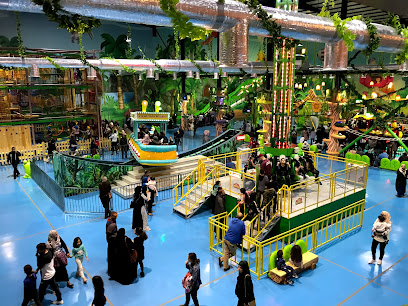
Royal Mausoleum of Mauritania
Explore the Royal Mausoleum of Mauritania, an ancient Berber tomb with stunning architecture and a rich history dating back to 3 BCE.
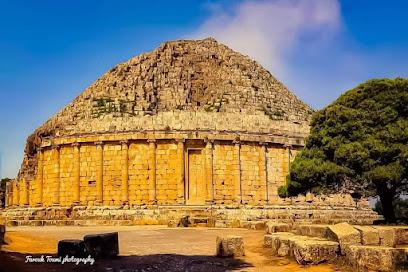
Ben Aknoun National Park
Discover Algiers' natural side at Ben Aknoun National Park: a zoo, gardens, and tranquil escape for families and nature enthusiasts.
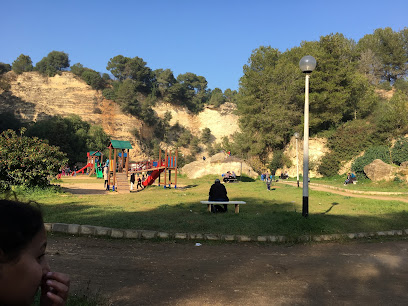
Ketchaoua Mosque
Explore the Ketchaoua Mosque in Algiers, a captivating symbol of Algerian history and architectural fusion in the heart of the Casbah.
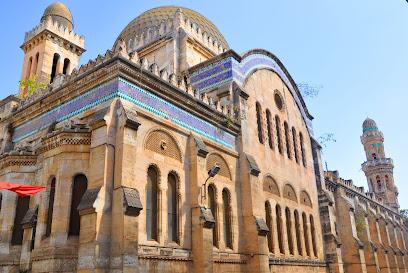
Dream Park
Experience thrilling rides and family fun at Algiers' premier amusement destination, creating unforgettable memories for visitors of all ages.
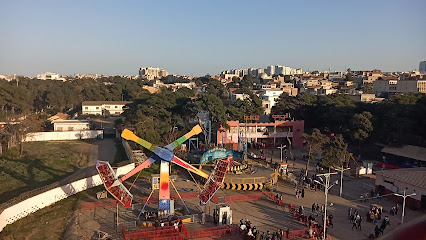
Sablette Seaview Ballade
Discover Sablette Seaview Ballade in Algiers: a waterfront park with stunning views, gardens, and recreational activities for all ages.
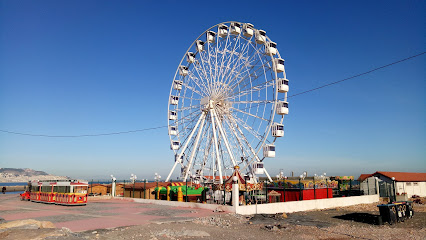
Sacred Heart Cathedral
Discover Algiers' Sacred Heart Cathedral: a blend of neo-Gothic architecture, serene gardens, and rich Algerian history and culture.
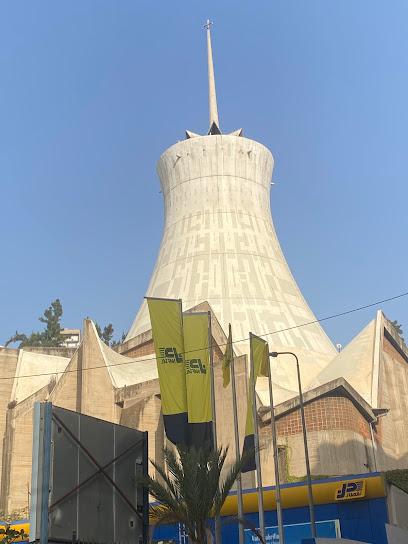
Museum of Fine Arts
Discover a treasure trove of Algerian and international art at one of Africa's largest museums, offering a rich cultural experience in Algiers.
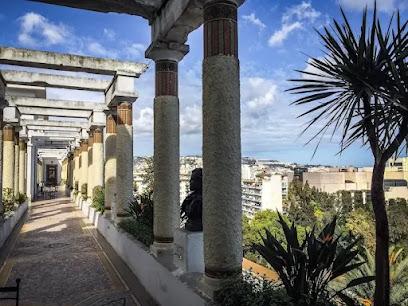
Sacred Heart Cathedral
Discover Algiers' Sacred Heart Cathedral: a blend of modern architecture, rich history, and serene spirituality in the heart of the city.
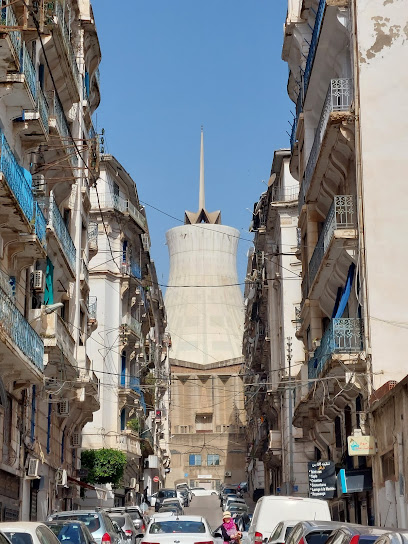
كيدي بارك
Experience thrilling rides, lush gardens, and cultural events at Kidi Park, the perfect family destination in Bordj El Kiffan, Algiers.
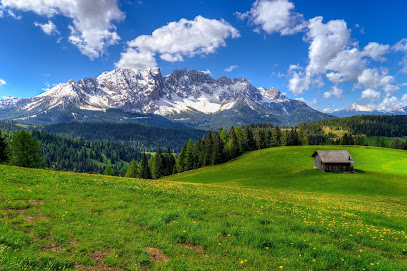
بَابُ عَزُّونْ
Explore Bab Azzoun in Algiers' Casbah: A historic gateway where culture thrives and echoes of the past resonate in every corner.
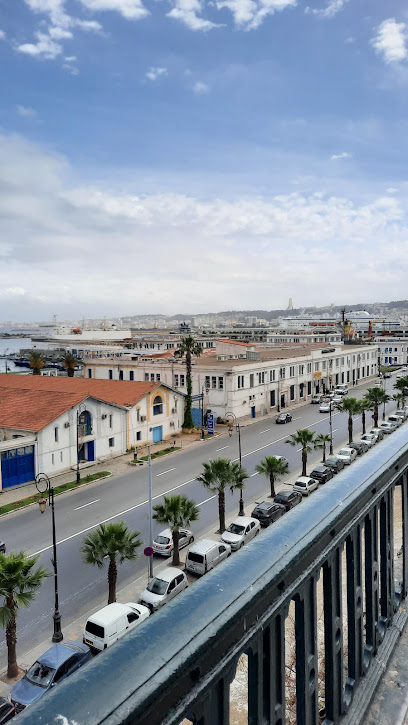
Essential places to dine
Restaurant Signature
Discover exquisite Algerian cuisine at Restaurant Signature in El Biar, where every dish tells a story and every meal is an experience.
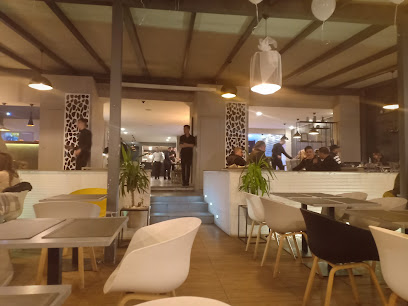
مطعم ارابيسك الجزائر & Restaurant Arabesque Alger
Discover authentic Algerian flavors at Restaurant Arabesque - where every meal is a celebration of tradition and taste.
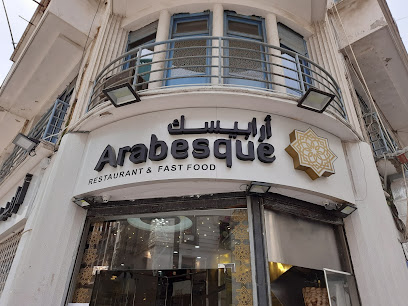
Caracoya
Experience the vibrant flavors of Algeria at Caracoya – where authentic cuisine meets warm hospitality.
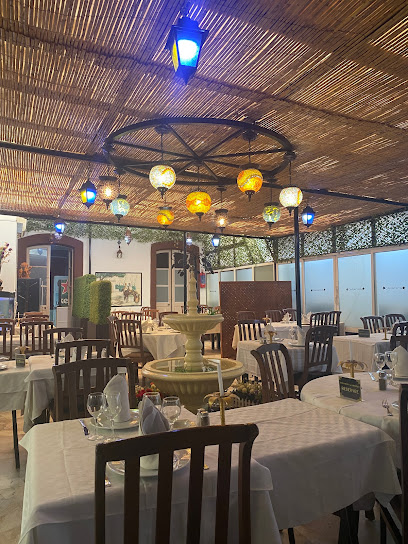
La Palmeraie Restaurant مطعم النخيل
Discover authentic Moroccan flavors at La Palmeraie Restaurant in Dély Ibrahim – where tradition meets taste in every dish.
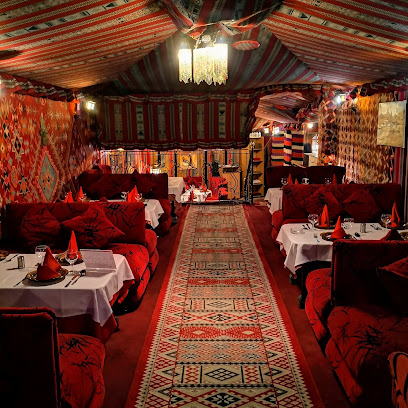
وودي جريل الجزائر العاصمة
Experience authentic Turkish flavors at Woody Grill in Algiers – where every dish tells a story.
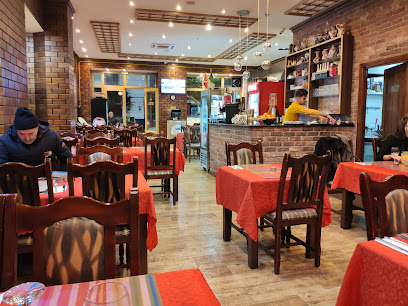
Le Bardo Restaurant مطعم الباردو
Experience authentic Algerian flavors at Le Bardo Restaurant in Sidi M'Hamed - where tradition meets culinary excellence.
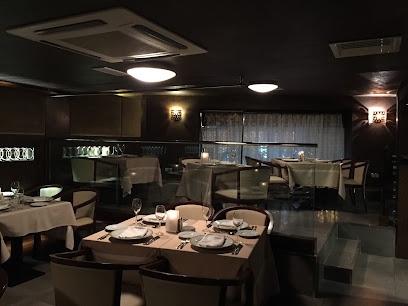
Le Tantra
Discover the culinary delights at Le Tantra in El Madania – where traditional flavors meet modern dining experiences.
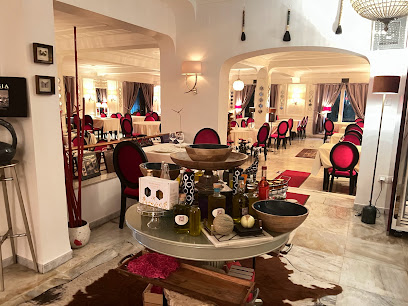
Garden Restaurant Al Boustane
Experience authentic Algerian cuisine in a serene garden setting at Garden Restaurant Al Boustane.
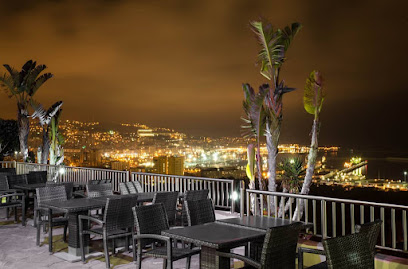
Le Repère
Discover the flavors of Algeria at Le Repère, a hidden culinary treasure nestled in the historic Casbah of Algiers.
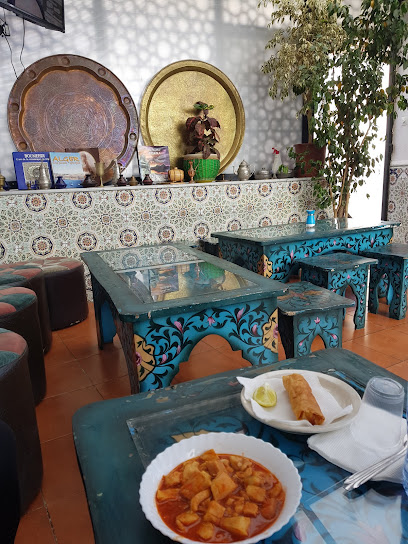
Hollywood pizza
Experience delicious pizza at Hollywood Pizza in Sidi M'Hamed - where every slice tells a story of authentic flavors.
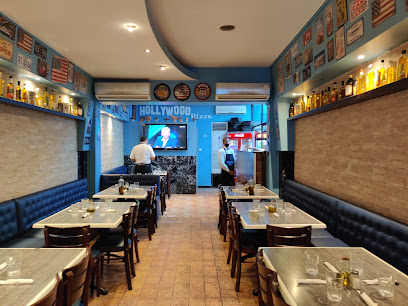
Chic Chic Restaurant
Discover diverse culinary delights at Chic Chic Restaurant in Algiers - where Italian flavors meet BBQ bliss in an inviting atmosphere.
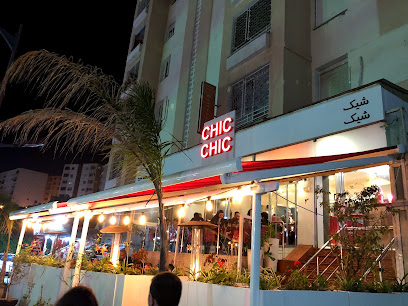
Restaurant QG
Discover the essence of Algerian cuisine at Restaurant QG in El Biar—where authentic flavors meet warm hospitality.
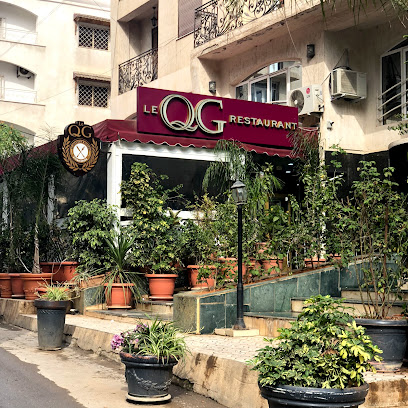
Restaurant Le Tajine
Discover authentic Moroccan cuisine at Restaurant Le Tajine in Algiers—where every dish tells a story.
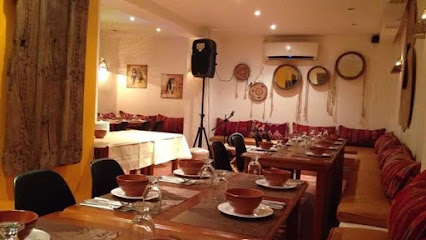
Restaurant Le Farfalla
Discover authentic Algerian flavors at Restaurant Le Farfalla in Hydra – a culinary experience not to be missed!
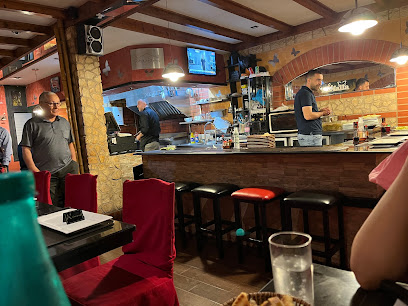
Le Bon Gibier
Experience the essence of Algerian cuisine at Le Bon Gibier – a culinary gem in El Madania offering authentic flavors in a cozy setting.
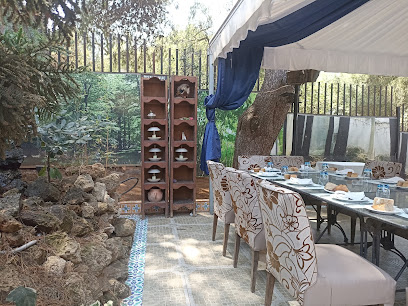
Markets, malls and hidden boutiques
Marina mall
Discover shopping, dining, and entertainment at Marina Mall, the ultimate destination in Mohammadia, Algiers for tourists and locals alike.
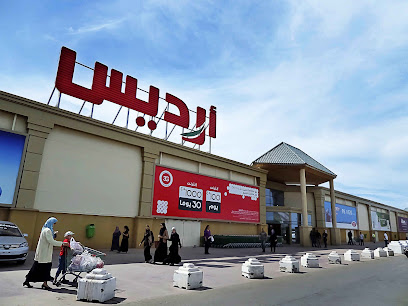
Mersem amore e mentalita
Explore the vibrant culture of Algeria at Mersem Amore e Mentalita, a unique gift shop in the heart of Algiers' historic Casbah.
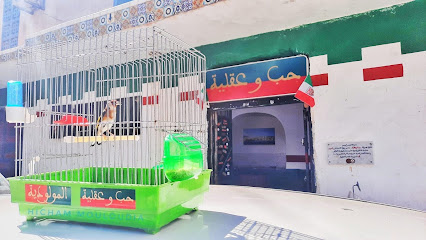
Mode Avenue
Discover the latest fashion trends and local styles at Mode Avenue, Chéraga's premier clothing destination for tourists and fashion enthusiasts.
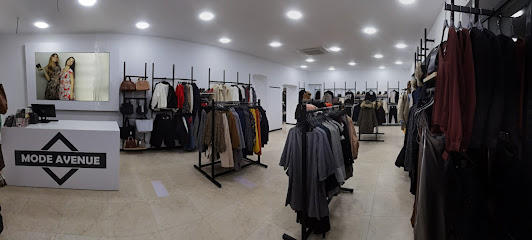
Premium Store
Explore the Premium Store at Centre Commercial Garden City - a shopper's paradise in Chéraga, offering diverse products and exceptional service.
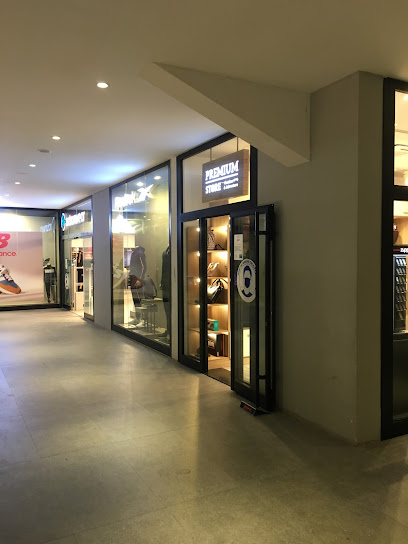
دار ڨاوار
Explore the vibrant gifts of دار ڨاوار, a traditional market in El Djazair offering handcrafted treasures and authentic Algerian souvenirs.
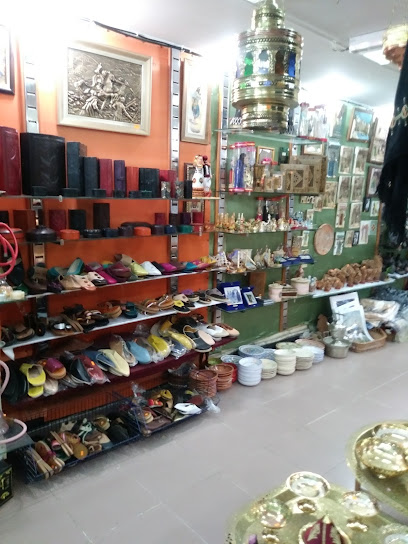
BCR boutique , rue 113 Hassiba ben bouali
Explore BCR Boutique in Algiers - A Unique Shopping Experience Blending Tradition and Modernity.
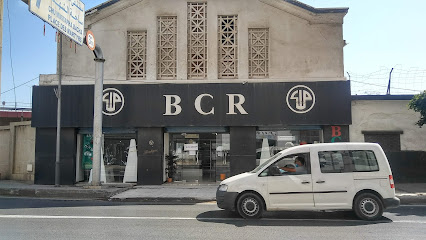
El Nesry
Explore unique Algerian fashion at El Nesry, a clothing store in Sidi M'Hamed showcasing local craftsmanship and style.
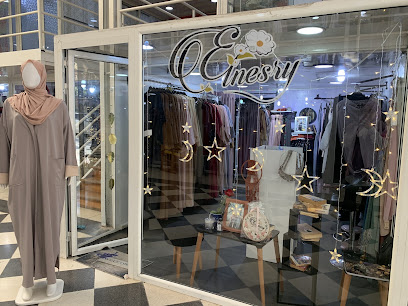
Algerie Outlet Gallerie
Explore diverse fashion styles and enjoy a friendly shopping experience at Algerie Outlet Gallerie in El Biar.
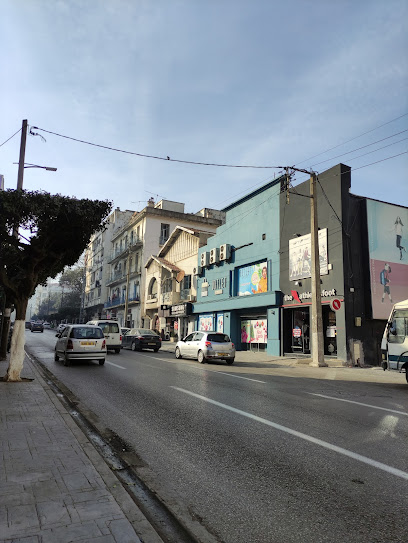
Smart Algerie
Discover the latest trends in fashion at Smart Algerie, a stylish clothing store in Hydra offering unique pieces for every fashion lover.
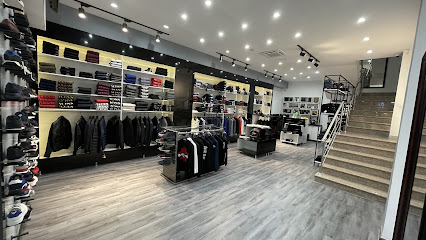
Paul & Shark Algerie
Explore stylish fashion and accessories at Paul & Shark Algerie, the premier boutique in El Biar offering exquisite clothing for men and women.
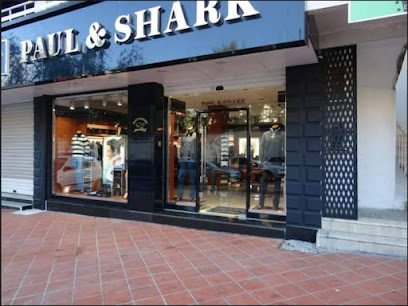
M&H SHOPPING DZ
Explore M&H Shopping DZ in Dar El Beïda for a unique book shopping experience, featuring local and international literature in a cozy setting.
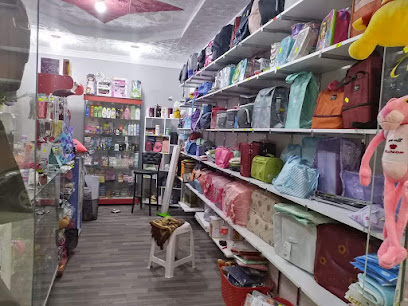
Boutique Imane
Explore the vibrant world of Algerian quilting at Boutique Imane, where every quilt tells a story and craftsmanship meets culture.

MINI PRIX
Explore the vibrant world of MINI PRIX in Mohamed Belouizdad, your ultimate destination for unique gifts, educational supplies, and delightful toys.
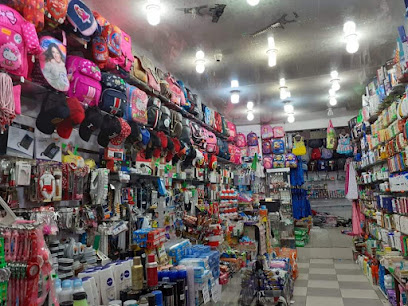
Mim Shopping Prêt-à-porter Féminin
Discover the essence of modern Algerian fashion at Mim Shopping Prêt-à-Porter Féminin, where style meets local culture in the heart of El Djazair.
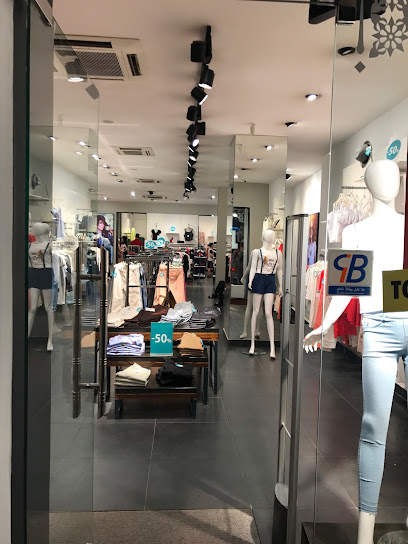
Souvenir, Gifts Shop / هدايا تذكارية
Explore the vibrant essence of Sidi M'Hamed with unique souvenirs at this charming gift shop, perfect for travel keepsakes.
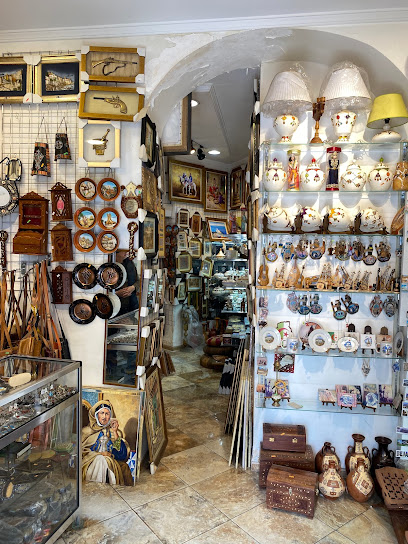
Essential bars & hidden hideouts
PianoPiano.dz
Experience the best of El Madania at PianoPiano.dz, where sushi, live music, and cultural vibrancy come together for an unforgettable evening.
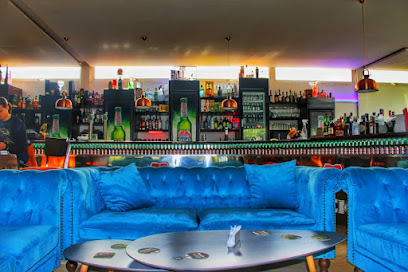
Restaurant Le Bearnais
Experience the rich flavors of Algeria at Restaurant Le Bearnais, a culinary haven in El Djazair for food lovers and travelers alike.
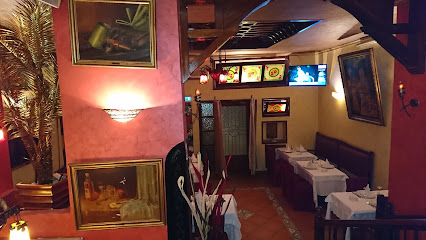
Cosmopolitain
Experience the vibrant flavors of Algeria at Cosmopolitain, a lively bar and tapas restaurant in the heart of Algiers, where every bite tells a story.
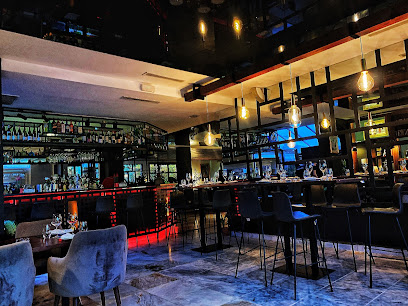
Club gentleman
Experience the vibrant atmosphere of Club Gentleman, a premier bar and grill in Bordj El Kiffan, where delectable cuisine meets refreshing drinks.
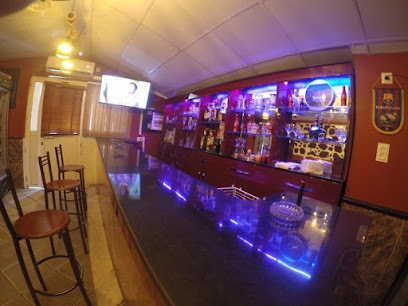
L’ARQ RESTAURANT & LOUNGE
Discover the flavors of Algeria at L’ARQ Restaurant & Lounge, a stylish dining destination in Hydra with a delightful cocktail bar.
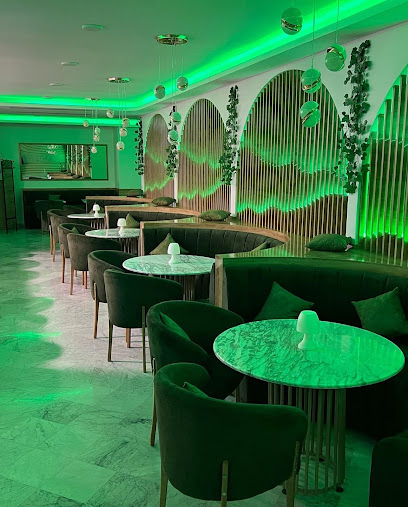
Le Tonneau - Bar
Discover the vibrant atmosphere and refreshing drinks at Le Tonneau - your perfect bar experience in Sidi M'Hamed.
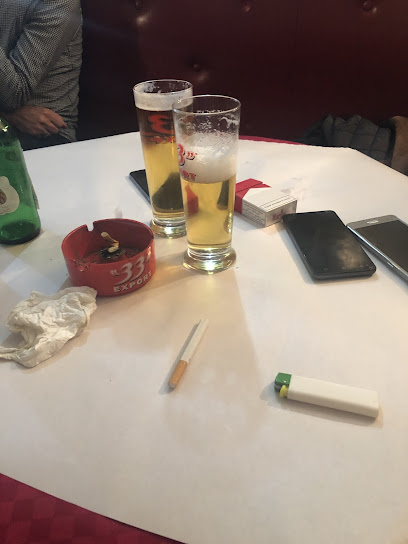
BigBen Restaurant
Discover BigBen Restaurant in Bir Mourad Raïs for a unique blend of local cuisine, exquisite cocktails, and delightful desserts in a vibrant setting.
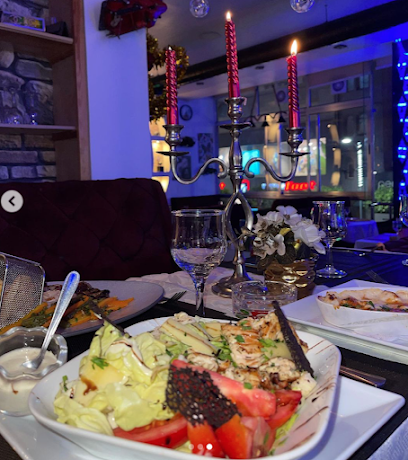
Les Arcades Sixteen 16
Discover the vibrant nightlife of El Madania at Les Arcades Sixteen 16, a premier night club and lounge for an unforgettable experience.
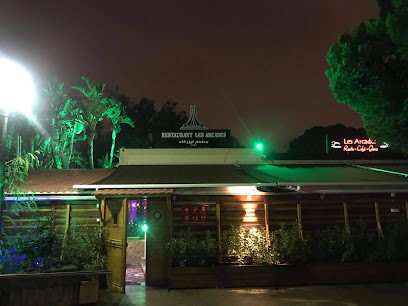
كلاسيك لاونج
Experience the vibrant fast food culture at كلاسيك لاونج in El Djazair, where delightful flavors and a lively atmosphere await every visitor.
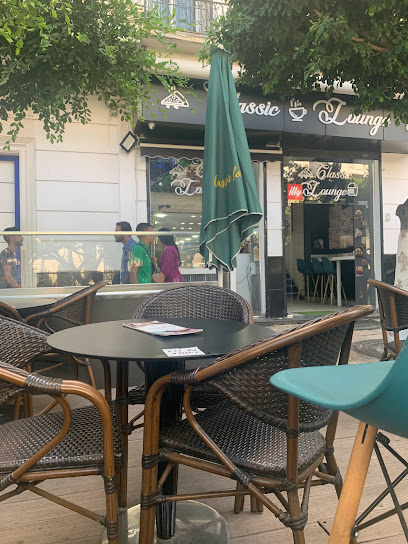
Casabella
Discover the vibrant atmosphere of Casabella, a cozy bar in El Achour offering a taste of local culture and refreshing drinks.

Bar El Dey
Experience the vibrant nightlife of Algiers at Bar El Dey, where local culture meets modern charm in a lively bar atmosphere.

Alger bar
Discover the lively Alger Bar in El Djazair, where local music and vibrant atmosphere create unforgettable nightlife experiences.
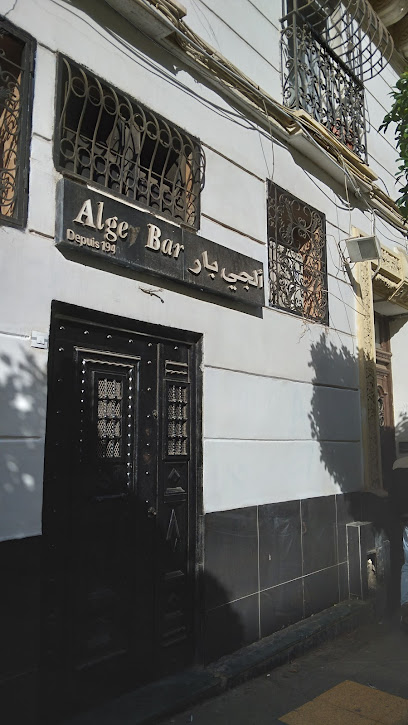
Brasserie La Toison D'or
Discover the vibrant atmosphere and local flavors at Brasserie La Toison D'or in El Djazair, a must-visit bar for every traveler.
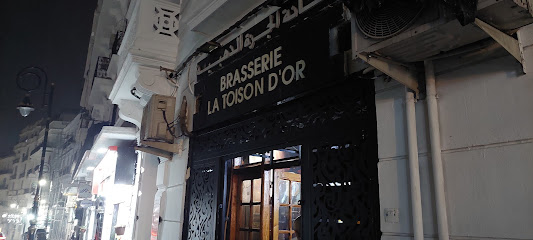
el manzel restaurant
Experience authentic Algerian grilled cuisine in a cozy atmosphere at El Manzel Restaurant in Ben Aknoun.

أخصائي كبدة
Experience the authentic flavors of El Djazair at أخصائي كبدة, a bar specializing in exquisite liver dishes that will tantalize your taste buds.

Local Phrases
-
- Helloمرحبا
[marhaba] - Goodbyeوداعا
[wadaan] - Yesنعم
[naam] - Noلا
[la] - Please/You're welcomeمن فضلك
[min fadlik] - Thank youشكرا
[shukran] - Excuse me/Sorryعذرا
[aadhra] - How are you?كيف حالك؟
[kayfa halak?] - Fine. And you?بخير. وأنت؟
[bikhayr. wa anta?] - Do you speak English?هل تتحدث الإنجليزية؟
[hal tatahadath al-inglizia?] - I don't understandلا أفهم
[la afham]
- Helloمرحبا
-
- I'd like to see the menu, pleaseأريد أن أرى القائمة، من فضلك
[urid an ara al-qaimah, min fadlik] - I don't eat meatأنا لا آكل اللحم
[ana la aakol al-lahm] - Cheers!في صحتك!
[fi sahtak!] - I would like to pay, pleaseأريد أن أدفع، من فضلك
[urid an adfa, min fadlik]
- I'd like to see the menu, pleaseأريد أن أرى القائمة، من فضلك
-
- Help!النجدة!
[al-najdah!] - Go away!ارحل!
[irhal!] - Call the Police!اتصل بالشرطة!
[itassil bialshurta!] - Call a doctor!اتصل بطبيب!
[itassil bitalib!] - I'm lostلقد ضللت
[laqad dalalt] - I'm illأنا مريض
[ana mareed]
- Help!النجدة!
-
- I'd like to buy...أريد أن أشتري...
[urid an ashtari...] - I'm just lookingأنا فقط أتفرج
[ana faqat atfarrag] - How much is it?كم ثمنه؟
[kam thamanuh?] - That's too expensiveهذا غالي جدا
[hatha ghali jiddan] - Can you lower the price?هل يمكنك تخفيض السعر؟
[hal yumkinuk takhfid al-siir?]
- I'd like to buy...أريد أن أشتري...
-
- What time is it?كم الساعة؟
[kam al-saaah?] - It's one o'clockالساعة الواحدة
[al-saaah al-wahidah] - Half past (10)النصف بعد (العاشرة)
[al-nisf baad (al-aashirah)] - Morningصباح
[sabah] - Afternoonبعد الظهر
[baad al-thuhr] - Eveningمساء
[masaa] - Yesterdayأمس
[ams] - Todayاليوم
[alyawm] - Tomorrowغدا
[ghadan] - 1واحد
[wahid] - 2اثنان
[ithnan] - 3ثلاثة
[thalatha] - 4أربعة
[arbaa] - 5خمسة
[khamsa] - 6ستة
[sitta] - 7سبعة
[sabaa] - 8ثمانية
[thamania] - 9تسعة
[tisaa] - 10عشرة
[ashara]
- What time is it?كم الساعة؟
-
- Where's a/the...?أين هو/هي...؟
[ayn huwa/hiya...?] - What's the address?ما هو العنوان؟
[ma huwa al-anwan?] - Can you show me (on the map)?هل يمكنك أن تريني (على الخريطة)؟
[hal yumkinuk an tureeni (ala al-kharitah)?] - When's the next (bus)?متى القادم (الحافلة)؟
[mata al-qadim (al-hafilah)?] - A ticket (to ....)تذكرة (إلى ...)
[tadhkirah (ila ...)]
- Where's a/the...?أين هو/هي...؟
History of Algiers
-
Algiers, known as El-Djazair in Arabic, was founded by the Berber people around 944 AD. The city's name means 'The Islands,' referring to the four islands that lay off its coast before becoming part of the mainland. Algiers quickly grew into a significant hub for trade and culture in the Mediterranean region.
-
In 1516, the famed corsair brothers Aruj and Hayreddin Barbarossa captured Algiers and established it as a base for their operations. By 1529, Algiers had become part of the Ottoman Empire. Under Ottoman rule, Algiers flourished as a center of commerce and piracy, becoming one of the most powerful cities in the Mediterranean.
-
In 1830, the French launched an invasion of Algiers, marking the beginning of over 130 years of colonial rule. The city became the capital of French Algeria, and its architecture and urban planning were significantly influenced by French styles. During this period, Algiers saw the construction of many iconic buildings, including the Basilica of Notre-Dame d'Afrique.
-
The struggle for Algerian independence began in earnest in the mid-20th century. Algiers was a focal point of the Algerian War for Independence (1954-1962), which saw fierce battles and political turmoil. The war culminated in Algeria achieving independence from France in 1962. Algiers played a crucial role as the heart of the independence movement.
-
Post-independence, Algiers evolved into a vibrant, modern capital. The city has seen significant development and modernization efforts while retaining its rich historical and cultural heritage. Key landmarks like the Martyrs' Memorial, built to commemorate the war for independence, and the Casbah, a UNESCO World Heritage site, highlight the city's blend of history and contemporary life.
-
Algiers is a melting pot of cultures, reflecting its diverse history. The Casbah of Algiers, with its labyrinthine streets and historic buildings, offers a glimpse into the city’s Ottoman past. The city also hosts numerous festivals, museums, and cultural institutions, including the National Museum of Fine Arts and the Bardo Museum, showcasing Algeria's rich artistic and cultural heritage.
Algiers Essentials
-
Algiers is accessible via Houari Boumediene Airport (ALG), which is approximately 20 kilometers from the city center. Several international airlines operate flights to this airport from major cities in Europe, the Middle East, and Africa. Once at the airport, you can take a taxi or use the airport shuttle service to reach the city center. Alternatively, there are bus services connecting the airport to various parts of the city.
-
Algiers has a variety of transportation options. The city's metro system, Algiers Metro, covers key areas and is a convenient mode of travel. Public buses and trams are also available and cover extensive routes throughout the city. Taxis are widely available but ensure to negotiate the fare beforehand or insist on using the meter. Ride-hailing services like Yassir are also an option. Car rentals are available but driving in Algiers can be challenging due to traffic.
-
The official currency in Algeria is the Algerian Dinar (DZD). Credit cards are accepted in major hotels, restaurants, and shops in Algiers, but it is advisable to carry cash for smaller establishments and local markets. ATMs are widely available in the city. Currency exchange services are offered at the airport, banks, and many hotels.
-
Algiers is generally safe for tourists, but it's important to stay vigilant. Areas such as Bab el Oued and some parts of the Casbah can have higher crime rates, particularly targeting tourists. Avoid walking alone at night in these areas and keep your belongings secure. Petty crime, such as pickpocketing, can occur in crowded places, so remain cautious.
-
In case of emergency, dial 14 for the police and 17 for medical emergencies. The main hospitals in Algiers include Mustapha Pacha Hospital and Bab El Oued Hospital. It's advisable to have travel insurance that covers medical emergencies. For minor health issues, pharmacies are widely available throughout the city.
-
Fashion: Do dress modestly, especially when visiting religious sites. Avoid wearing revealing clothing. Religion: Do respect local customs and traditions. During prayer times, avoid loud behavior near mosques. Public Transport: Do be respectful and give up your seat to elderly passengers. Don’t eat or drink on public transport. Greetings: Do greet people with a handshake. For men, a light kiss on both cheeks can also be a greeting among friends. Eating & Drinking: Do try local delicacies and accept food offerings graciously. Don’t refuse hospitality, as it is considered impolite.
-
To experience Algiers like a local, visit the local markets (souks) such as Souk El Fellah and Souk El Harrach where you can buy fresh produce and traditional goods. Spend time at a local café and try the mint tea and pastries. Exploring the Casbah, a UNESCO World Heritage Site, offers a glimpse into the city's rich history. Engage with locals, as they are often friendly and willing to share stories about Algiers' culture and history.
Trending Landmark in Algiers
-
Martyrs Memorial
-
Botanical Garden Hamma
-
Martyrs' Square
-
Church of Notre Dame of Africa
-
Ketchaoua Mosque
-
Riad Al Fath
-
Emir Abdelkader Place
-
Sacred Heart Cathedral
-
Al-Rahma Mosque
-
The Great Mosque
-
Culture Palace Moufdi Zakaria
-
National Museum of Antiquities and Islamic Art
-
Hamma Zoological Park
-
National Museum of Arts and Popular Traditions
-
Dar Mustapha Pacha
Nearby Cities to Algiers
-
Things To Do in Tizi Ouzou
-
Things To Do in Bejaia
-
Things To Do in Setif
-
Things To Do in Palma de Mallorca
-
Things To Do in Constantine
-
Things To Do in Oran
-
Things To Do in Alicante
-
Things To Do in Murcia
-
Things To Do in Annaba
-
Things To Do in Valencia
-
Things To Do in Tlemcen
-
Things To Do in Almeria
-
Things To Do in Oujda
-
Things To Do in Tarragona
-
Things To Do in Barcelona















